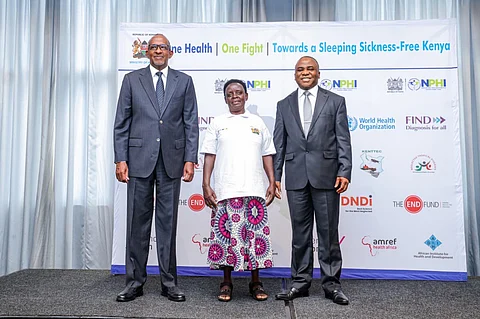

Kenya has achieved a landmark public health victory, with the World Health Organization (WHO) officially confirming the elimination of Human African Trypanosomiasis (HAT), or sleeping sickness, as a public health problem. The milestone, decades in the making, reflects the country’s success in tackling neglected tropical diseases through strong policy, scientific innovation, and community-driven action.
Since the first recorded case in 1901 and the first documented diagnosis in Samia in 1942, HAT has threatened communities across Busia, Bungoma, Siaya, Homa Bay, Migori, and Narok counties, placing over seven million people at risk. Kenya has reported zero indigenous cases since 2009, with WHO’s 2025 validation confirming the impact of sustained investment, collaboration, and vigilance.
At the validation ceremony themed “One Health | One Fight | Towards a Sleeping Sickness-Free Kenya”, Health Cabinet Secretary Hon. Aden Duale praised health workers, technical partners such as WHO and PATTEC, and local communities for their role in the achievement.
He highlighted the importance of sustained surveillance, early detection, community engagement, investment in vector control, and integration of HAT services into primary health care. The CS also linked the milestone to Kenya’s Emergency Preparedness and Response strategy, stressing that the infrastructure used for HAT elimination should now support future outbreak preparedness, cross-border health security, and pandemic readiness.
Kenya is actively contributing to global health governance through the Pandemic Treaty negotiations and strengthening its National Public Health Institute (NPHI) to enhance epidemic intelligence, rapid response, and integration of community-level detection with national and global systems.